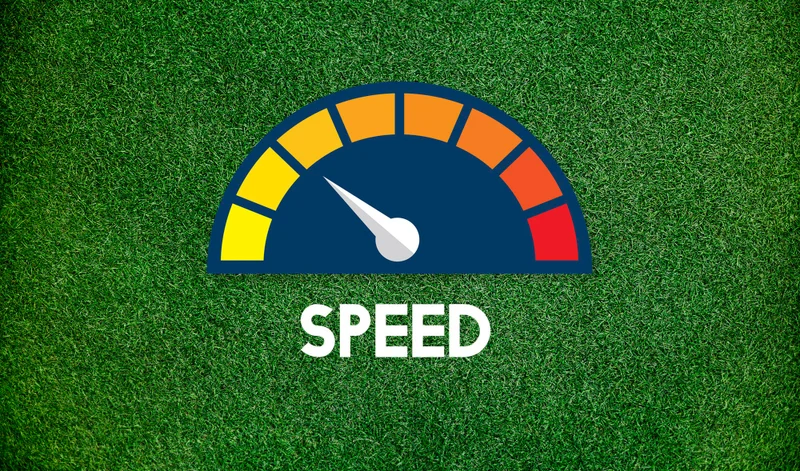Speed: Setting limits and high-speed chases
Generated Title: Speed Limits and Sobriety: When Regulations Go Off the Rails
The Absurdity Index
Let's talk about speed. Or rather, the creeping, almost comical slowness that seems to be gripping certain corners of the world. Take Slovakia, for example. The Slovakian parliament, in its infinite wisdom, has decided that cyclists, skaters, and scooter riders on pavements should be limited to a blistering 6km/h (about 3.7 mph). Exceed that, and you could be slapped with a 100 euro fine.
The stated goal is safety. Last year, 67 pedestrians and 22 cyclists or scooter riders died in accidents. But here's the rub: police don’t record pavement accidents separately. So, the entire justification rests on a data vacuum. It's like trying to predict the stock market based on tea leaves—an exercise in futility (and bad policy).
Dan Kollar, president of Cyklokoalicia, rightly calls the law "nonsensical." He points out the obvious: it's hard to maintain balance at such a low speed. Even toddlers on bikes routinely exceed it. The result? Children become lawbreakers before they can even spell "legislature." Slow-vakia? Law setting speed limits for cyclists, skaters derided in Bratislava
And how will this be enforced? Will Slovakian police be equipped with tiny radar guns, hiding behind lampposts, waiting to pounce on rogue skateboarders? The logistical nightmare alone makes the whole thing laughable. It brings to mind the old Soviet joke: "We pretend to work, and they pretend to pay us."
Contrast this with the world of NHRA drag racing, as showcased in the VICE TV docuseries "Chasing Speed." We're talking about machines exceeding 340 miles per hour (547 km/h, for the metrically inclined). Brittany Force even hit a record-setting 343 mph. The NHRA is celebrating its 75th anniversary in 2026, a testament to humanity's enduring fascination with going ludicrously fast (in a controlled, and hopefully safe, environment).
The disconnect is jarring. On one hand, you have a nation trying to micro-manage pedestrian traffic at a snail's pace. On the other, you have individuals pushing the boundaries of velocity on a quarter-mile track.
The Human Element
Now, let's shift gears (pun intended) to a different kind of high-speed chase, one that ended not with cheers and champagne, but with a stolen minivan in Tijuana, Mexico. A woman named Alyssa Wilson, residing at a sober living home in California, allegedly stole a 2004 Toyota Sienna and led police on a multi-hour pursuit, reaching speeds of 90 mph (145 km/h).

The owner of the sober living home, Nicolle Walters, reported the vehicle missing. What’s unusual is the chase went on for so long. Captain Robert Yoos of the Ventura County Sheriff’s Office noted the unique traffic conditions allowed the pursuit to extend. Wilson dodged all the spike strips, eventually crossing the US-Mexico border.
Walters, remarkably, seemed more concerned for Wilson's well-being than the loss of her minivan. "At the end of the day, I’m not worried about the car," she said. "I’m more at ease knowing she wasn’t hurt. The car is replaceable."
This highlights a critical point: the human element. While Slovakia focuses on arbitrary speed limits, and the NHRA celebrates raw velocity, Walters confronts the messy reality of addiction and recovery. The path isn't linear, and sometimes, it involves stolen minivans and high-speed chases. (It's worth noting, the van was from 2004—depreciation likely already factored in the "loss.")
And this is the part of the report that I find genuinely puzzling. Why did the pursuit continue for so long? Was there a legitimate threat to public safety, or did it become a matter of principle? The aerial videos show Wilson dodging spike strips with some degree of skill. Was she a menace, or just desperate?
The data here is incomplete. We know the speeds involved, the duration of the chase, and the eventual outcome. But we don't know Wilson's state of mind, the specific reasons for her actions, or the full extent of the risk she posed.
The Velocity of Absurdity
Slovakia's 6km/h speed limit is an exercise in regulatory overreach, unsupported by data and likely unenforceable. It's a solution in search of a problem. It's government for the sake of government. Meanwhile, a woman in California drove a stolen minivan to Mexico, reminding us that human behavior is far more complex, and far less predictable, than any speed limit.
